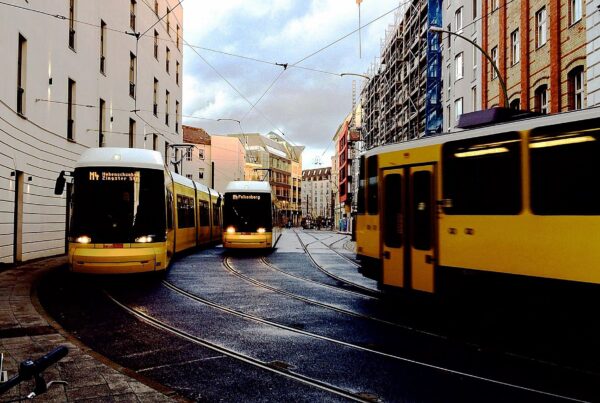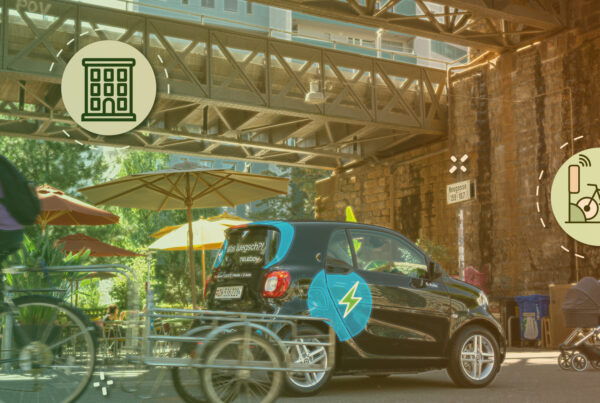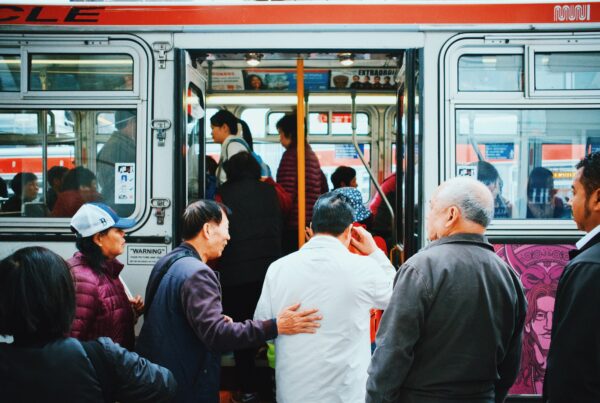The Mobility Hub
Your weekly guide to the latest in shared mobility
SUMC News and Announcements
Meet new speakers and get the inside scoop on our 2021 program
We are honored to have an esteemed new host and two new expert speakers for The Big Shift: Building the Infrastructures for Shared Mobility that will help us push our transportation system towards equity and sustainability.
Exactly how, you may be wondering? Each week we are focusing on different parts of our national infrastructure: July 6: Informational & Physical Systems; July 13: Financial Systems; July 20: Policy & Institutional Systems; July 27: Social & Political Systems.
As for program details, the agenda is coming to your inbox next week! (And it’s filled with provocative conversations, panels, breakout sessions, networking events that foster real connection, policy talk, our expo, and a very special 2021 Spotlight.)
Hosting: Beverly A. Scott, Ph.D.
CEO, Beverly Scott Associates, LLC
Founder, Introducing Youth to American Infrastructure, Inc
With the mantra, “People and Communities Matter,” Dr. Scott is a frequent speaker on the critical need to invest in smart, next-generation infrastructure to advance American competitiveness, sustainable outcomes, and “shared prosperity”. She leads Beverly Scott Associates, LLC, an infrastructure-focused consulting practice that specializes in workforce development and addressing challenging situations with practical solutions that advance equity and inclusion. She is also the Founder of Introducing Youth to American Infrastructure, Inc., a national non-profit dedicated to inspiring, educating, and engaging today’s youth to be tomorrow’s “community builders” – with special emphasis on people of color and women.
She serves as a Senior Fellow at the Transportation Learning Center; in an advisory capacity to the Charles Hamilton Houston Institute for Race and Justice at Harvard University Law School in the areas of transportation, infrastructure, and equity; and as Board-Vice Chair at Jobs To Move America.
Speaking: Nico Larco
Director Urbanism Next Center
Co-Director of the Sustainable Cities Institute
Professor of Architecture and Urban Design at the Univ. of Oregon (UO)
As Director of the Urbanism Next Center at UO, Prof. Larco focuses on how technological advances such as new mobility, autonomous vehicles, e-commerce, and the sharing economy are changing city form and development. He assists cities and projects with future-proofing, has run workshops and charrettes nationally and internationally on this topic, and is currently coordinating work in this area across North America and in Europe.
Prof. Larco also researches sustainable urban design, has developed the Sustainable Urban Design Framework, and assists projects in how best to apply these principles and approaches.
Speaking: Penny Grellier
Community Development Administrator
Pierce Transit
Penny Grellier is the Community Development Administrator for Pierce Transit in Lakewood, Washington where she works with businesses and organizations to design transit benefits for employees, student groups, and clients. Ms. Grellier facilitates partnerships to support transit, active transportation, and shared-use mobility options and develops new approaches to innovative service. Previously, she managed Pierce Transit’s Limited Access Connections project, an MOD Sandbox-funded pilot with Lyft, and used lessons learned from that project to develop a first- and last-mile microtransit pilot.

Mobility Justice
Multi-use trails create more vibrant, livable neighborhoods and are essential for active travel—if you can still afford to live near them. The organizations developing the Atlanta BeltLine project are scrambling to address displacement and wildly increasing home values with a resident retention program, but the damage might already be done.
Something as simple as the lighting in public spaces can spark massive growth in urban, economic, and community development. Cities like Jinja City in Uganda are taking that one step further and using solar-powered street lights that save energy and the environment as well.
The fight for climate justice isn’t new, but a movement is burgeoning in young activist crowds across the world that focuses the fight for environmental justice on the regions that suffer the effects of climate change the most, the global south, and they’re bringing their advocacy to the political arena.

Ridehailing/Carsharing/Carpooling
When your business model consists of people stepping into cars with strangers, building trust is fundamental. With that in mind, ridehailing underdog HopSkipDrive has built an experience-heavy ecosystem of “CareDrivers” who the company says are supporting long-term resilience in changing times.
Bench-style seats, expanded leg room, and customer-centric design touches make Uber and Arrival’s upcoming electric ridehailing vehicle a dream for both drivers and riders that the companies hope will wake up the industry in 2023.
Carsharing gets a new player with mobility company Bolt launching a free-floating service with 500 cars in Tallinn, Estonia; becoming the first platform in Europe to offer carsharing, ridehailing, and micromobility (which includes scooters and e-bikes) in one handy app.

Bikesharing & Micromobility
Lime has brought its green (in more than one way) moped-sharing service to New York with a launch of 100 EVs in Brooklyn, Queens, and Manhattan—with aims to boost the fleet to 500 in a few weeks’ time.
Zoomo is an Australian startup that believes e-bike subscriptions are the future of last-mile delivery and with $12 million in new funds, they might be right.
Not all micromobility operations are seeing brighter days. Honolulu’s Biki bikeshare is facing major operation cuts, even shutting down the program entirely, because of ridership drops due to the pandemic. Steadfast local organizations and advocates are circulating a petition to have Biki recognized as official public transportation to keep the gears moving.

Transit
Montgomery, AL’s Freedom Rides Museum is celebrating the 60th anniversary of the Freedom Riders’, who rode interstate buses into the segregated South, “with a restored Greyhound bus of the same model that carried Riders”—honoring their contribution to racial equity and mobility justice.
How can a tech startup possibly advise public transportation agencies on smart ways to start rebounding? Co-founder and CEO of Optibus Amos Haggiag lays out the lessons he’s learned, which hinge on the need to develop technology that meets users’ changing demands.
Boston officials are considering a proposal to trial fare-free bus rides on certain corridors as the city focuses “on equitable recovery from COVID”, but the MBTA wants to try fare discounts for low-income riders instead (2015 idea that has yet to materialize).

Technology
“What we need are not more energy-efficient cars or self-driving cars or…privately owned fleets that are available for hire, but fewer cars entirely.” The New Republic spells out the truth behind the autonomous vehicle and electrification hype overtaking the industry.
Meet the WheeM-i: a proposed shared and electric micromobility vehicle for wheelchair users that includes driving assistance, collision-avoiding tech, and a connected app to usher in a better future for accessible mobility.
In an effort to combine art and safe walkability, students from the School of the Art Institute of Chicago and North Lawndale community leaders are teaming up to add an LED mural near the Kedzie-Homan Blue Line station for a more pedestrian-friendly intersection.

Sustainability
Crossing the street outside of intersections or crosswalks is a victimless act that has been unfairly enforced on Black and Brown people for far too long. Streetsblog recounts a recent webinar hosted by active transportation advocacy organization BikeWalkKC that calls for its repeal.
Electrification is important, but as Streetsblog writer Kea Wilson points out, it can deal a hefty blow to parking reform movements that have worked to reduce swaths of land devoted to personal cars.
NACTO and Bloomberg Philanthropies grants are back. Ten city transportation agencies working with grassroots organizations will receive $50,000 and assistance implementing projects that help those disproportionately impacted by the pandemic while serving as models for equitable streets response recovery. Applications are due by May 20.
Project Funding Opportunities
RFP: Center for Pan Asian Community Services Microtransit Program
Center for Pan Asian Community Services
Atlanta, GA
Deadline: May 19, 2021
RFP: Vehicle Electrification Advisory Services for Fleets Pilot Program
Massachusetts Clean Energy Center
Deadline: June 14, 2021
Notice of Funding: Pilot Program for Transit-Oriented
Development Planning FY2021
Federal Transit Administration
Deadline: June 21, 2021
We’d like to thank the following sponsors for their support
of the 2021 National Shared Mobility Summit.
Interested in sponsorship? (Yay!) Take a look at the options.
Have breaking news or an interesting deep dive to share?
Let us know.









